1. Oh, the suspense!
I spent much of yesterday trying not to think about the debates, which are microcosms of the terror generally associated with elections. As Alfred Hitchcock understood when he created the pre-Psycho buzz, a movie’s scariness begins with the advertising, long before you take your seat in the theater. I don’t recall feeling so anxious about a media event since the countdown to the release of Prometheus, which, like the first debate, was disappointing. If you think I’m a freak for being so obsessed, you might consider that the folks at ABC hadn’t even heard of me when they created their 2012 Presidential Elections Fantasy Game.
2.A lot can happen in 90 minutes.
The average running time of a horror film is very close to the (supposed) length of a presidential debate. In that short sliver of time, the lives of millions can change, even end.
3. The bad guys are monsters.
I usually approach the horror genre in the spirit of William Godwin and Mary Wollstonecraft–it’s a powerful political tool that can agitate for liberation by showing the horrors of oppression. However, this image makes me feel ashamed:
This image forces me to admit that vilifying members of historically disenfranchised groups through exaggerated, racialized images of otherness is, alas, one of the horror genre’s most common refrains. Oh, and smart people are scary–fear brains! Of course, evil aristocrats are just as common as evil ethnic minorities in the horror genre, and Obama is certainly trying to paint Romney as an evil aristocrat. But then again, after what the Koch brothers and other billionaires have done, good-guy 1%-ers like Bruce Wayne seem more like a fantasy than ever. Or, as the Weekly World News reports:
4. Violence is graphic.
As Obama and Romney circled around each other on the “town hall” stage, I was waiting for one of them to visit the grossest of gross fatalities on the other. So the violence of their differences did indeed get some visual representation. Alas, Obama did not rip off Romney’s head and swing around his spinal cord like a lasso.
5.Shouting at the screen is encouraged.
Much as we are inclined to shout at the hapless onscreen victims, “Don’t go in there!” or “Turn on the lights, stupid!,” during the first debate, I wanted to shout at Obama to get it together. During last night’s debate, I was much more inclined to shout at Romney, “Oh no you didn’t!” Whatever that means.
6. Historically, the first one is usually more important than the sequels and remakes.
I read several articles proclaiming that, although Obama won last night, it didn’t really matter–the first debate is the only one likely to make a difference at the polls. Similarly, I like the remake of The Hills Have Eyes (2006) more than the 1977 original, but the original is the one I put on a syllabus a few years back. Then again, I did teach the 2007 sequel to the remake because it’s clearly about American engagements in Afghanistan and Iraq, so maybe there’s hope.
7. The acting is often bad.
In my opinion, Obama has done a heckuva good job with the economy despite some of the worst possible circumstances. Nevertheless, that’s not what the American people want to hear, so he had to present–unconvincingly–a rosier picture. Similarly, Romney is obviously lying when he says his platform doesn’t favor the rich, but much like people don’t typically go to horror movies to see Oscar-worthy performances, nobody seems to care.
8. The narratives are often full of holes.
This one is a corollary to the last one. In my classes this week, we discussed how the movie The Fog (1980) involves a lot of creepy goings-on that don’t make a lot of sense. Similarly, Obama and Romney tell stories about their records and about each other that are a little too simplistic to pass rigorous analysis. Then again, brains are evil. See number 3, above.
9. The fate of the world could depend on the outcome.
If you pay attention to stupid religious fanatics as well as a number of anti-Obama billboards I recently saw in Ohio, Obama’s positions on gay marriage and abortion are pretty much going to bring about the end of days. Similarly, if Romney’s economic polices are put in place, the gap between rich and poor will continue to widen, and next thing you know, your kids are playing the Hunger Games. Sadly, I couldn’t load the page that yielded this image on a Google search, but I like the idea of Obama as the Mockingjay:
10. The good guys don’t always win.
According to Time, zombies are “the official monster of the recession.” While many of us in horror studies are really rather tired of zombies by now, they remain instructive, as their stories have always been political allegories in which the flesh-eating bad guys usually win. The potential for the bad guys to win often sets horror movies apart from their genre counterparts: while horror viewers do sometimes like a happy ending, we recognize that not all the stories we follow will end well. And so with the debates, and so with elections. I do hope for the best, though, Please use your brains; don’t fear that people who have them are out to eat yours, too. Vote.
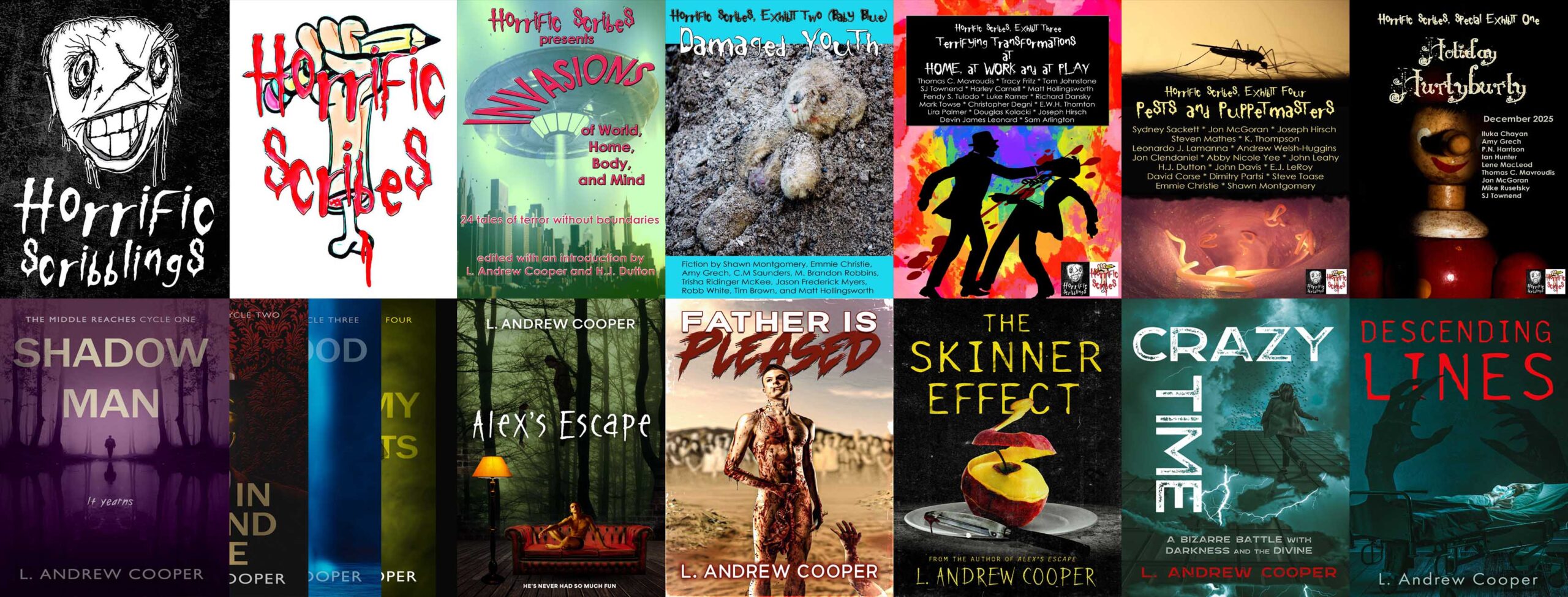
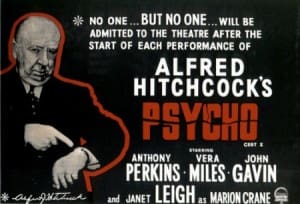
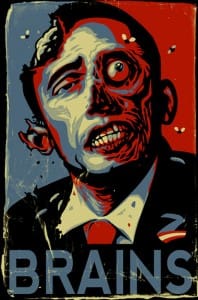
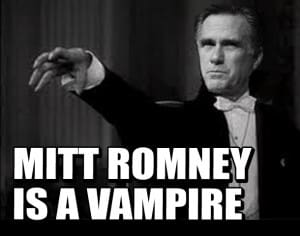
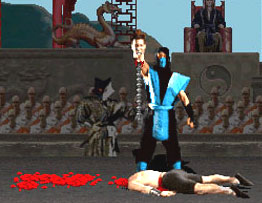

Comments are closed.